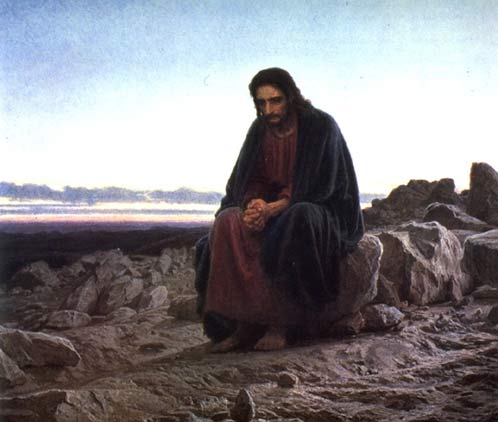|
According to God's word, God is the creator of all spirits, not
their contemporary and co-equal:
Thus saith God the LORD, he that created the heavens, and stretched them out; he that spread forth the earth, and that which cometh out of it; he that giveth breath unto the people upon it, and spirit to them that walk therein:.
. ." (Isaiah 42:5).
"The burden of the word of the
LORD for Israel, saith the LORD, which stretcheth forth the
heavens, and layeth the foundation of the earth, and formeth the
spirit of man within him." (Zechariah 12:1).
"Then
shall the dust return to the earth as it was: and the spirit
shall return unto God who gave it." (Ecclesiastes 12:7).
"Furthermore we have had fathers of our flesh which corrected
us, and we gave them reverence: shall we not much rather be in
subjection unto the Father of spirits, and live?" (Hebrews
12:9).
The fact that we stand to Him in the relation of creature to creator refutes any
idea that we are co-eternal or co-equal or on the same plane as He:
"Know ye that the LORD he is God: it is he that hath made us, and not we ourselves; we are his people, and the sheep of his pasture."
(Psalm 100:3).
A better attitude for us to take would be that of Abraham, the friend of God, who called himself "dust and ashes:"
"And Abraham answered and said, Behold now, I have taken upon me to speak unto the Lord, which am but dust and ashes:.
. ." (Genesis 18:27).
Ironically their own scriptures go Abraham one better, explaining
that mankind are less than the dust of the earth: "Ye cannot say
that ye are even as much as the dust of the earth; yet ye were created
of the dust of the earth; but behold, it belongeth to him who created
you." (Mosiah 2:25); "O how great is the nothingness of the children of
men; yea, even they are less than the dust of the earth."
(Helaman 12:6). Joseph Smith had not yet conceived the idea of men
exalted to godhood. Amongst all the contradictions of his prophetic
career, between his oscillation from modalism to polytheism, his
varying identifications of Elias compounded by his failure to realize
Elijah is the same party, this one stands out: he started off realizing
how small man is in comparison with God, but then he lost that insight.
In rebuttal, Mormons point to the fact of the incarnation. But the incarnation was not a revealing that God after all
has the same nature as man, but rather a new thing; God the Son took on a human nature, in addition to His own eternal
divine nature.
For men to acclaim themselves gods is nothing new; the Prince of
Tyre and the King of Babylon did it, Wallace D. Fard did it, and the late Kim
Jong Il sometimes dipped his toe in the divinity pool, as did Father Divine. It was Satan's
lying promise to Adam and Eve that they could be as gods. But those men who
so far fail to comprehend their own nature do not gain the living God's praise for so doing.
Mormon confusion about this very clear distinction rises to levels
beyond what even these deluded men ever claimed:
"Having particular reference to his position as the
patriarchal head of the human family — the first man, 'the first and
oldest of all, the great, grand progenitor' — Adam is known as the Ancient of Days. (D. & C. 27:11; Teachings, pp. 157-159, 167-169).
In this capacity he will yet sit in formal judgment upon 'ten
thousand times ten thousand' of his posterity, and before him at
Adam-ondi-Ahman will be brought the Son of Man to receive 'dominion,
and glory, and a kingdom, that all people, nations, and languages,
should serve him.' (Dan. 7:9-14.)" (Mormon Doctrine, Bruce R. McConkie, p. 34).
The reason why the Bible teaches that Jesus is both God and man is
not because the Bible authors share Joseph's confusion that these are somehow the same thing. The two
natures are understood to be of altogether different character and
origin, though joined in one person. And Jesus, the God-man, does not receive His kingdom from any man:

|

